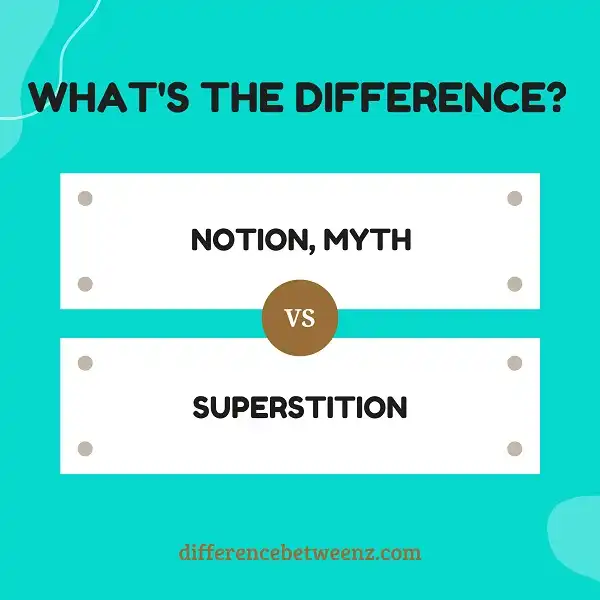When you get down to it, there is a fine line between the words ‘notion’ and ‘myth’. In fact, the two are often used interchangeably. But what is the difference? Are they really that different? Superstition might be considered a sub-category of myth, but there are some key distinctions. Let’s explore!
What is Notion, Myth?
Notion is a belief or idea. Myths are stories that are passed down through generations and often have a cultural or religious significance. Notions and myths can be based on truth, but they can also be unfounded. For example, the notion that the earth is round is based on science, while the myth that dragons exist is not. Notions and myths can be helpful in understanding the world, but they can also be dangerous if they’re used to justify harmful beliefs or actions. It’s important to critically evaluate notions and myths to determine whether they’re worth believing in.
What is Superstition?
- Superstition is an irrational belief that an object, action, or circumstance not logically related to a course of events influences its outcome. In other words, superstition is the belief that one can affect the world around them through magical thinking. Superstitions are often passed down from generation to generation, and they can be found in cultures all around the world.
- Common examples of superstitious beliefs include lucky charms, avoiding black cats, and walking under ladders. While superstitions may seem harmless, they can actually have a negative impact on people’s lives.
- Superstitious thinking can lead to irrational decisions and can even be used to justify discrimination and violence. Therefore, it’s important to be aware of the power of superstition and to question any irrational beliefs that you may hold.
Difference between The Words Notion Myth and Superstition
Notion, myth, and superstition are often used interchangeably, but there are actually some subtle differences between the three terms. Notions are ideas or beliefs that may or may not be based in reality.
- For example, the notion that the world is round is a scientific fact, while the notion that dinosaurs still roam the earth is not. Myths, on the other hand, are stories or belief systems that are typically based on folklore or religion.
- For example, the Greek myth of Demeter and Persephone tells the story of how winter came to be. And finally, superstitions are irrational beliefs that often center around bad luck or magical thinking.
- For example, many people believe that breaking a mirror will lead to seven years of bad luck. So next time you’re trying to communicate an idea or belief, be sure to choose the right word. Notion, myth, or superstition? Only you can decide.
Conclusion
It is important to be able to differentiate between the words “notion,” “myth,” and “superstition” in order to have a clear understanding of their meanings. Each word has its own unique definition, which can help or hinder our thinking processes, depending on the context in which they are used. Hopefully, this article has helped you gain a better understanding of these three important words and their implications.


